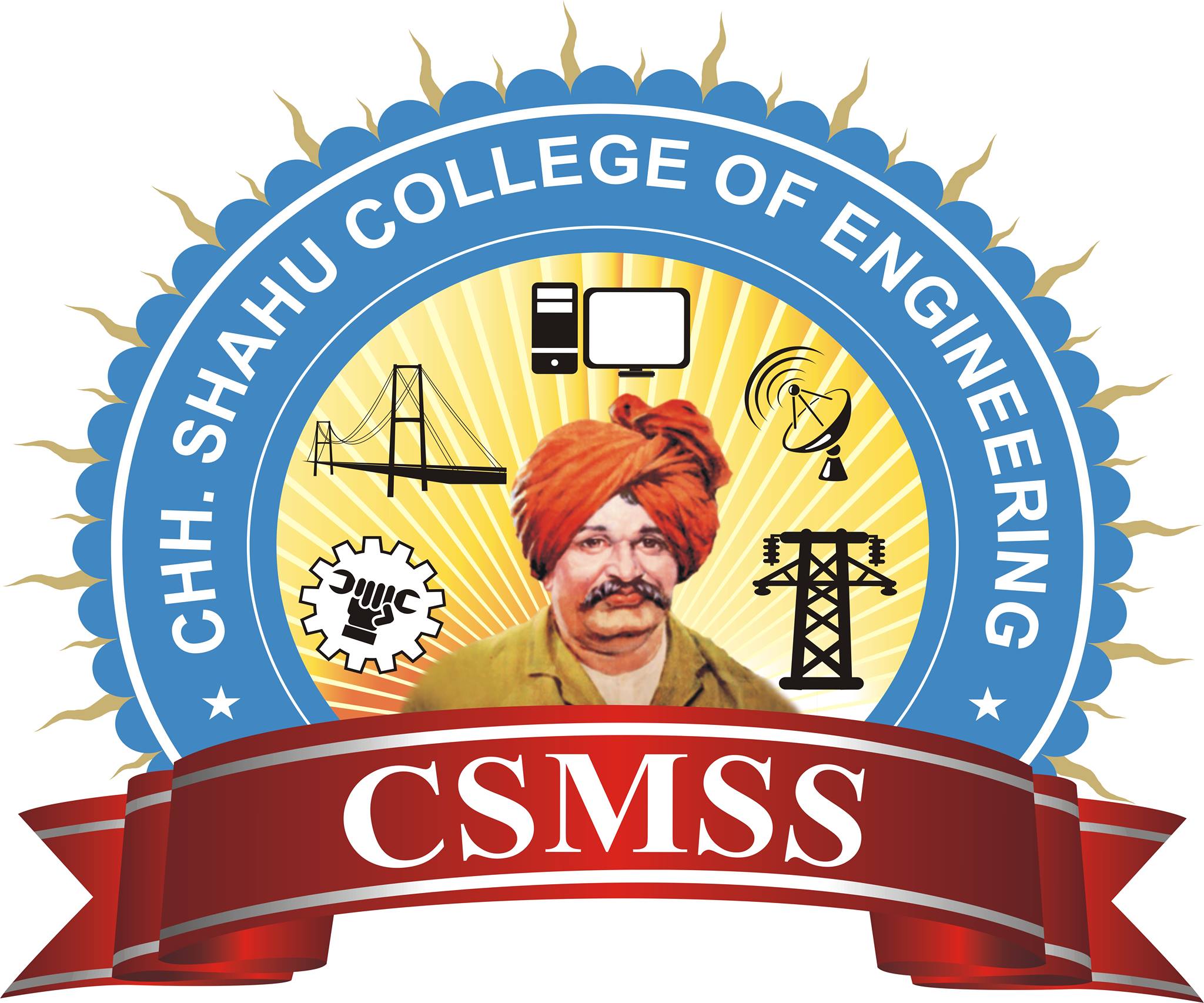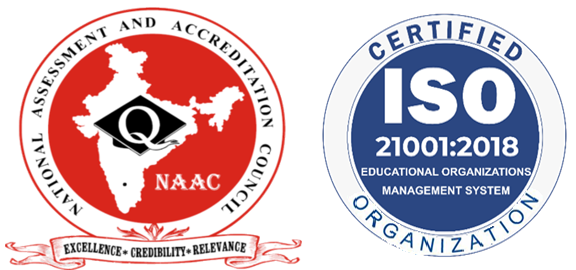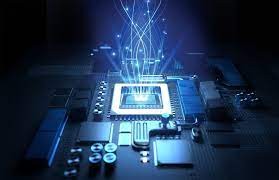| Dr. Shrikant J. Honade | Associcate Professor & Head | hodvlsi@csmssengg.org |


CSMSS
CHH. SHAHU COLLEGE OF ENGINEERING
Approved by AICTE-New Delhi, DTE-Govt. of Maharashtra,
Affiliated to Dr. Babasaheb Ambedkar Technological University, Lonere.
Department of Electronics Engineering (VLSI Design and Technology)
VISION
To set benchmark in the field of electronics engineering by imparting quality & value based education to develop technocrats of global standards.
MISSIONM1: To develop dynamic student centric teaching-learning environment.
M2: To impart entrepreneur & employability skills among students through training, projects & industry collaboration.
M3: To imbibe social & professional values among students through interaction and teamwork.
M4: To set up environment for carrying out research and innovative activities.
PROGRAM SPECIFIC OUTCOMES (PSOs)
PSO 1: Apply knowledge of mathematics and science to solve advanced engineering problems in the areas of micro-electronic devices & circuits, Signal Processing and computation to pursue higher studies.
PSO 2: Accomplish advanced practical exposure in the domain of Electronics, IoT and VLSI using contemporary tools and / or equipment’s to acquire professional competencies to meet industry standards.
PROGRAM EDUCATIONAL OBJECTIVES (PEOs)
PEO 1: Graduates will Apply the fundamental concepts of electronics engineering for electronic system design.
PEO 2: Graduates will pursue career in VLSI design and allied fields on cutting edge technologies.
PEO 3: Graduates will exhibit professional ethics and teamwork in their profession through lifelong learning.
Program Outcomes (PO’S)
Click Here for Program Outcomes (PO’S)
About Department
Department of Electronics Engineering (VLSI Design and Technology) has a strong administration, infrastructure, and team of dedicated and experienced faculty members. Meritorious students are getting admitted to this program, not only from Maharashtra but all over India. In addition to core subjects related to the branch, VLSI core industry standard-specific and design-specific subjects are also included in the syllabus in line with the New Education Policy 2020. The department aims to develop VLSI-based industry-competent professionals of global standards capable of accepting challenges and able to solve societal problems at a larger level. The department offers two programs, The Undergraduate Program and the B.Tech. Electronics Engineering (VLSI Design and Technology) and Postgraduate Program - M.Tech. Electronics and Communication (VLSI Design) affiliated with Dr. Babasaheb Ambedkar Technological University, Lonere, Raigad. The department caters to the ever-increasing needs of technical brilliance in all allied areas of electronics and VLSI Design and Technology such as VLSI Front End and back-end design, Introduction to microfabrication, VLSI Testing and Verification, Embedded Systems, and Signal Processing. The Department is striving to develop well-equipped and industry-sponsored laboratories which leads to developing an exclusive professional, creative, and research environment.
Highlights
- Industry-Aligned Curriculum in line with NEP 2020
- Students centric interactive Teaching-Learning Approach
- Strong theoretical foundation of concepts with Experiential Learning / Virtual Lab Simulation
- Modern Teaching Methodologies and Active participation through MOOC based learning courses for Technical Skill enhancement.
- Providing a platform for student grooming through Student Association & Club activities.
- Effective student mentoring for holistic development.
HoD Message

It’s my pleasure to welcome you to the Department of Electronics Engineering (VLSI Design and Technology), a dynamic and innovative hub for learning and research in the field of electronics. Our department is committed to providing high-quality education and cutting-edge research opportunities in Very Large Scale Integration (VLSI) Design, Semiconductor Technology, and related fields. With the rapid advancements in technology and the growing demand for skilled engineers, we aim to equip our students with the knowledge and hands-on experience needed to excel in this competitive environment.
Our department’s vision is to set benchmarks in the field of Electronics Engineering by imparting quality & value-based education to develop technocrats of global standards. We offer a blend of theoretical knowledge and practical experience, supported by well-equipped laboratories and industry-standard tools. This prepares our students not only for academic excellence but also for future roles as leaders in semiconductor design, research, and entrepreneurship.
Our highly dedicated faculty members, who bring both academic and industrial experience, work tirelessly to inspire and mentor our students for academic excellence and innovation. Through collaborative research projects, industry internships, and workshops, we strive to bridge the gap between academic learning and industry requirements. Moreover, we encourage our students to engage in multidisciplinary activities and to remain adaptable to the fast-evolving technological landscape.
The department is striving to develop a dynamic student-centric teaching-learning environment by imparting entrepreneur & employability skills among students through training, projects & industry collaboration. This will help budding technocrats to contribute to the growing field of semiconductor technologies and nurture the next generation of engineers and innovators.
We invite you to explore the opportunities that our department offers and join us in this exciting journey of learning, innovation, and growth.
Laboratories in the Department
The department consists of 8 different laboratories which are fully equipped with a complete set of latest equipment & tools. The vital aspect is to bridge the gap between institute & industry through the students by performing the experiment on industrial platforms. The department is also equipped with PCs & software in every lab with an internet facility.
- Electronic Devices and Circuits Laboratory
- Digital Electronics Laboratory
- Programming Laboratory
- Signal Processing Laboratory
- Embedded System & IoT Laboratory
- VLSI and CAD Laboratory
- Self-Learning Lab
- PG Laboratory
| B.Tech Electronics Engineering (VLSI Design and Technology) |
| M.Tech Electronics and Communication (VLSI Design) |
University Syllabus
| Prof. Pandurang. N. Kathar | Assistant Professor | pnkathar@csmssengg.org |
| Prof. Tushar A. Mohije | Assistant Professor | tamohije@csmssengg.org |
| Prof. Komal B. Dandge | Assistant Professor | kbdandge@csmssengg.org |
| Prof. Gaurav R. Bhalekar | Assistant Professor | grbhalekar@csmssengg.org |
| Prof. Aditi H. Mante | Assistant Professor | ahmante@csmssengg.org |
| Prof. Hemant G. Ambhore | Assistant Professor | ambhore.hemant25@gmail.com |
| Prof. Ganesh G. Patil | Assistant Professor | ggpatil@csmssengg.org |
| Prof. Rohit M. Chudiwal | Assistant Professor | rmchudiwal@csmssengg.org |
Faculty / Staff List (Post Graduate - Electronics Engineering (VLSI Design and Technology))
| Dr. Jitesh R. Shinde | Associate Professor | jrshinde@csmssengg.org |
| Prof. Arun P. Satpute | Assistant Professor | @csmssengg.org |
Our Institute
Courses
Contact Us
- Chh.Shahu College of Engineering,
- Kanchanwadi, Paithan Road,
- Chhatrapati Sambhajinagar (Aurangabad), MS, India.
- Tel.: (0240) 2646363 , 2646373,
- 9921127099 ,
- 9011629299













